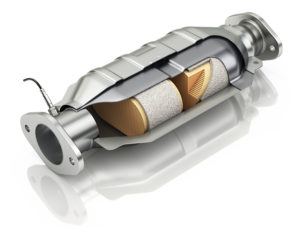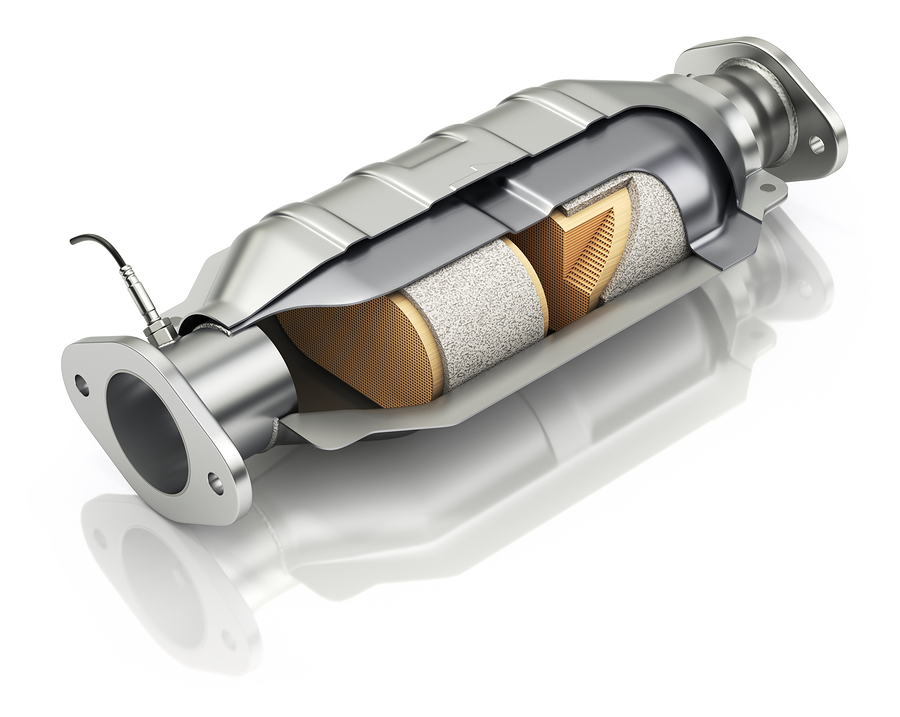The National Insurance Crime Bureau (NICB) reports today that from 2008 through 2015, there were 25,394 catalytic converter thefts across the nation. In 2008, there were 3,246 thefts of catalytic converters. That number rose to 3,986 at the end of 2015—an increase of 23 percent—according to a review of insurance claims data. These numbers reflect just insured thefts, so the actual number of all catalytic converter thefts is likely to be much higher.
For example, an online search of “catalytic converter thefts” produced news stories describing this activity occurring from Michigan to North Carolina and from California to New York—just this summer alone.
California is the state where the overwhelming majority of catalytic converter thefts occurred during this time frame—8,072. It was followed by Texas (1,705), Illinois (1,605), Ohio (1,439) and Georgia (1,215).
The top five cities where insured thefts were reported were: Chicago (980), Sacramento (850), Los Angeles (550), Atlanta (407) and Indianapolis (353).
Why catalytic converter thefts?
Stolen metals have been converted into cash by scrap metal operators who may have been acting within the law, but who may also have unwittingly enabled the proliferation of these kinds of thefts by providing a cash conversion point for purloined materials. As these kinds of thefts intensified – often disabling roadway lighting and airport runway lighting – they captured the attention of lawmakers around the country who, eventually, passed tough, new recycling laws to tighten regulations over metal recyclers.

But unlike base metals and other materials, catalytic converters are unique in that they each contain a small amount of one of three precious metals: platinum, palladium, or rhodium. The presence of those metals is what drives catalytic converter thefts as they can easily bring anywhere from $20 – $240 in recycling value depending on the amount and type of precious metal they contain.
An aggressive thief can easily collect 10-15 or more converters in a single day. They often target sport utility vehicles (SUVs) because their ground clearance is sufficient for the thief to gain access to the converter without having to deploy a jack. And that saves time.
While the replacement of a catalytic converter alone may be relatively inexpensive, many times vehicles are significantly damaged in the theft process making repairs much more costly. NICB recommends that consumers – particularly owners of SUVs—consider taking some preventive measures to deter the theft of their catalytic converters. Etching the catalytic converter with the vehicle identification number (VIN) is an effective deterrent and there are aftermarket security devices available as well.
Source: NICB
Was this article valuable?
Here are more articles you may enjoy.


 Building Fortification And The Role of The Insurance Industry
Building Fortification And The Role of The Insurance Industry  AIG’s Zaffino: Outcomes From AI Use Went From ‘Aspirational’ to ‘Beyond Expectations’
AIG’s Zaffino: Outcomes From AI Use Went From ‘Aspirational’ to ‘Beyond Expectations’  When the Workplace Is Everywhere: The New Reality of Workers’ Comp Claims
When the Workplace Is Everywhere: The New Reality of Workers’ Comp Claims  Tesla’s Austin Robotaxis Report 14 Crashes in First Eight Months
Tesla’s Austin Robotaxis Report 14 Crashes in First Eight Months 